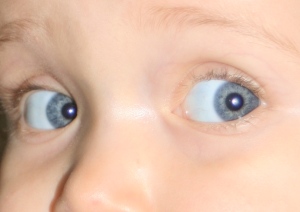
NOTEWORTHY WEDNESDAY FRIDAY!

As a follow-up to a recent post of mine I would like to comment on the article in the Wall Street Journal that is quoted below.
Hospitals can definitely play a significant role in the success of breastfeeding especially if they follow what Georgetown University Hospital is doing to actively encourage women and their infants to bond and breast feed soon after delivery.
I am not surprised that this example is from a teaching hospital in a major metropolitan area. Patients can be selective and demanding about where they deliver and these teaching hospitals want to offer all they can to provide what is recommended best for moms and babies. I am in no way putting down other hospitals but in my experience the teaching institutions will get on board with recommendations faster than other hospitals. The reasons are many but in today’s healthcare environment economics is a very motivating factor.
On the topic of economics…obstetrics traditionally is not a money maker for hospitals the way cardiovascular surgery is…that being said hospitals are businesses and pouring money and time into obstetrical services is not something that is done without serious financial considerations.
In my practice, I have had moms say that nurses and lactation consultants have been “Nazis” when it comes to breast feeding immediately after delivery and they have not liked the attitude that is has been conveyed to them in the hospital.
My question about the shift in breastfeeding strategy is ,when are we going to learn to be gentle with new moms and be encouraging with kindness? New moms are often scared and unsure of themselves and sometimes they are even afraid of their newborns and afraid of all the body changes that they are experiencing immediately after delivery.
New moms need to be catered to while in the hospital…they will be home soon enough dealing with a whole new world now that their baby is finally here.
Hospitals can be encouraged to shift their strategies ….that is all well and good but until they have the nurses and lactations consultants with a gentle touch, who are not overworked…but who are devoted to “helping” the new mom with her new baby without being judgmental, breastfeeding will still be much more of a challenge for mom and baby than it needs to be.
It is my belief that much more emphasis should be placed on the approach that is used with the new mom in combination with the strategies of early breastfeeding and bonding.
Maybe we need to revisit “Reva Rubin”s Postpartum Theory” to understand what the mom is emotionally experiencing in the first hours and days after delivery and use Reva’s observations to guide us in the care of the mother and newborn.
a. Taking-In Phase. During this phase the mother is oriented primarily to her own needs. She primary focuses on sleeping and eating. She may be quite passive and dependent. The mother is reacting to the intense, physical effort expended during delivery and the intense, emotional effort required of her during labor. The mother does not usually initiate contact with the infant. This is not out of disinterest. It may result from her own immediate dependency. Nevertheless, she is taking-in information that helps her to identify the infant. She may use her finger-tip to touch her infant. This serves as one of the first steps in the identification process. She holds the baby facing her so they can explore each other’s face (in the face position). The mother relives the delivery experience which allows her to integrate it fully with reality, fully realized her baby is born, and to identify her infant as being outside and separate from her. This phase, taking-in phase, may last for a day or two. The nurse should plan activities so that the patient can rest as much as possible because failure to allow the patient to receive the necessary and earned rest may yield a “sleep hunger” which may be manifested by irritability, fatigue, and general interference with the normal restorative process. The father’s role is primarily being supportive of his wife and his family.
b. Taking-Hold Phase. During this phase the mother strives for independence and autonomy, she becomes the “initiator.” She is concerned about her ability to control her bodily functions (that is, bowels, bladder, and if breast-feeding, concerned about adequate amount and quality of milk). She takes an active part in trying to control these functions. She is concerned about her ability to take care of her newborn. This phase is associated with a great deal of anxiety (especially by a new mother). She may have several mood swings. The mother might be involved in a lot of activity trying to accomplish tasks. Fatigue and exhaustion may occur if the mother is not helped to set realist expectations and limits for herself. The nurse is responsible to allow the mother to actually perform infant care tasks, reinforce all positive actions (do not impose yourself), and provide guidance, instruction, and demonstration, as necessary. Reassurance and explanation about infant care are especially needed in this phase. This phase lasts for about ten days (most of this phase is accomplished at home).
c. Letting-Go Phase. Generally, this phase occurs when the mother returns home. The mother must accomplish two separations during this phase. The separations are to realize and accept the physical separation from the baby and to relinquish her former role of a childless person. The mother must adjust her life to the relative dependency and helplessness of her child. If she quits work, she must adapt (even if only temporarily) to less freedom, less autonomy, and less social stimulation. If she continues to work, she must handle the additional strain of finding sitters and meeting additional workload. The mother may experience a let-down feeling, which is called postpartal, or baby, “blues.” This is a form of depression that is usually temporary and may occur in the hospital.
via Psychological Needs of the Postpartal Patient.
Reva Rubin believed that a mother needed time to absorb and integrate her labor and delivery. This takes place in the first couple of days postpartum while the mom is trying to get to know her newborn and begin the awesome task of taking care of him/her, changing diapers, bathing and feeding. The new mom probably does not pass through the “taking-in phase” before she is discharged home from the hospital.
Over the years postpartum hospital stays have gotten shorter and shorter so mom has had to condense her “taking-in” experience into hours rather than days. She has to get comfy with diapers, bathing, swaddling, and of course feeding…breast or bottle. Postpartum nurses have had to adjust their care to give mom a “crash” course in newborn care…this is a tall order and in my opinion it takes a skilled educated nurse to accomplish this effectively with a new mom.
To encourage breast-feeding, Georgetown University Hospital staff place the newborn on the mother as soon as possible, usually within a half hour after birth. The hospital, in Washington, D.C., delays weighing and measuring the baby until after this skin-to-skin bonding takes place, says Carol Ryan, who manages Georgetown’s lactation team. For women who had caesarean sections, healthy babies are brought to the mother as soon as possible and touch the mothers’ face if they can’t be placed on her, says Ms. Ryan. Infants also are roomed with the mother 24 hours a day, rather than being taken to the nursery.
The U.S. government’s goal for the end of the decade is for about 60% of women to be breast-feeding at least part of the time for the first six months, according to the government’s 2020 Healthy People objectives.
via A Shift in Strategy to Get More Mothers to Breast-Feed – WSJ.com.
We need more than strategies from hospitals…we need human kindness and a much more gentler approach to mother and baby in the hospital followed by a gentle approach at home while this dyad begins to take on the tasks before them. There needs to be a real effort made to make breastfeeding a “socially” acceptable thing. Education of the general public would greatly help in this area.
Then maybe we will begin to see a serious increase in breastfeeding success.
related posts:
http://parentingintheloop.wordpress.com/2011/08/04/world-breastfeeding-week/








